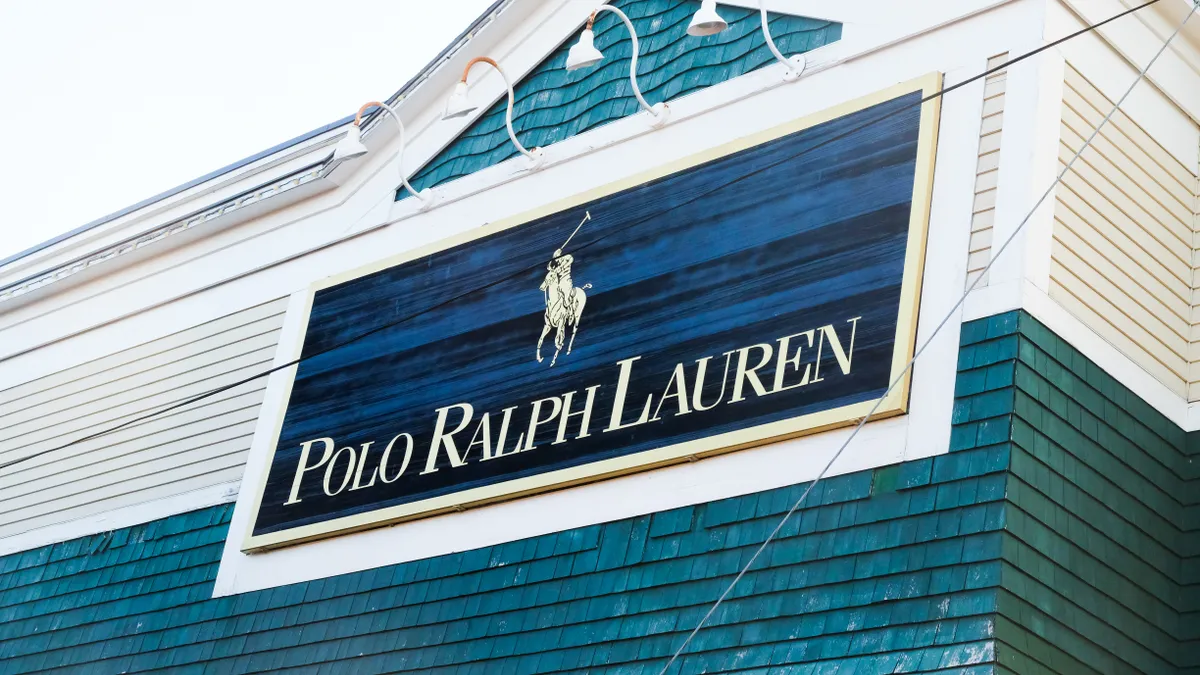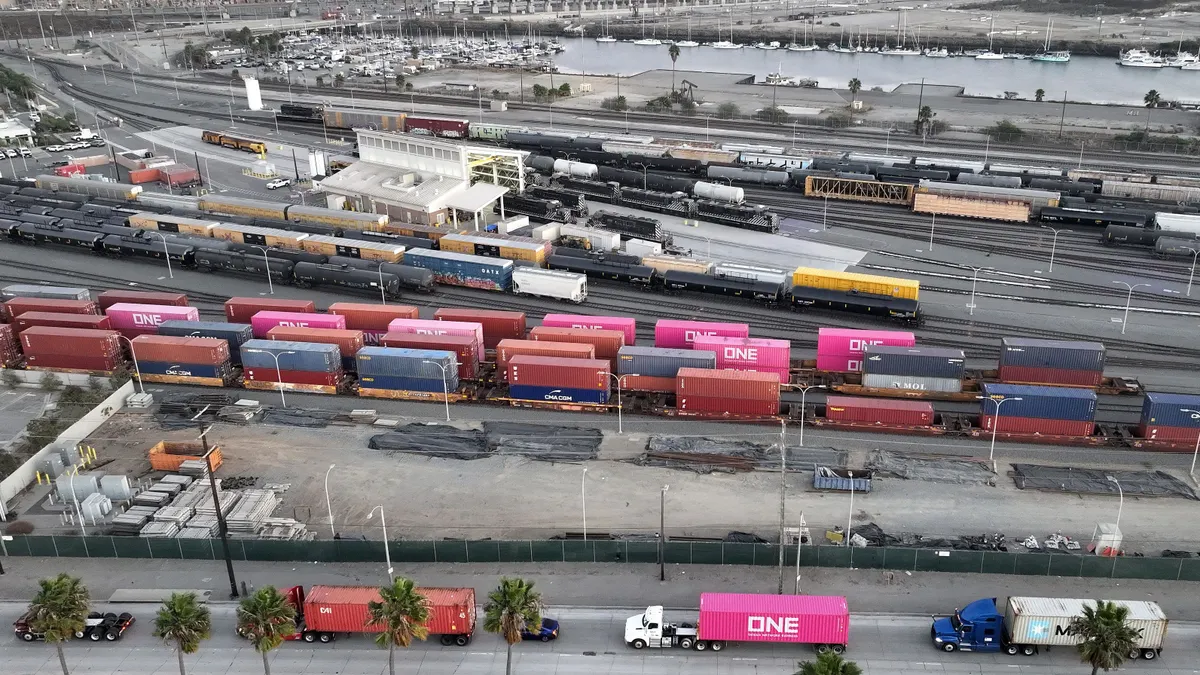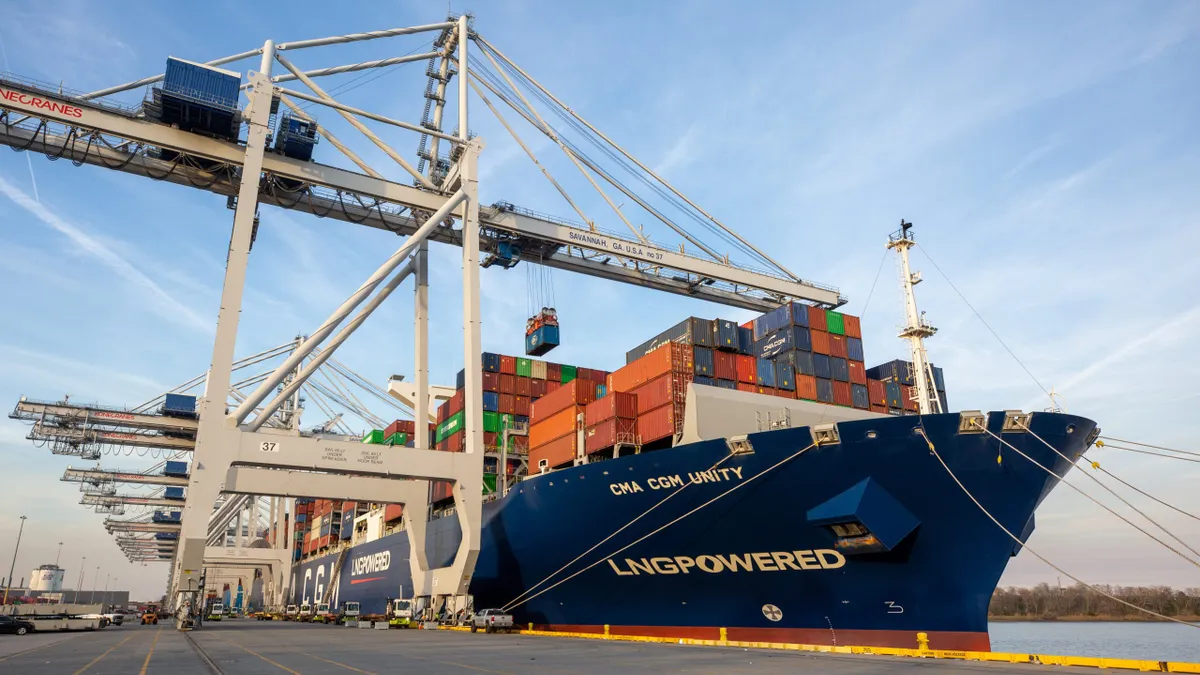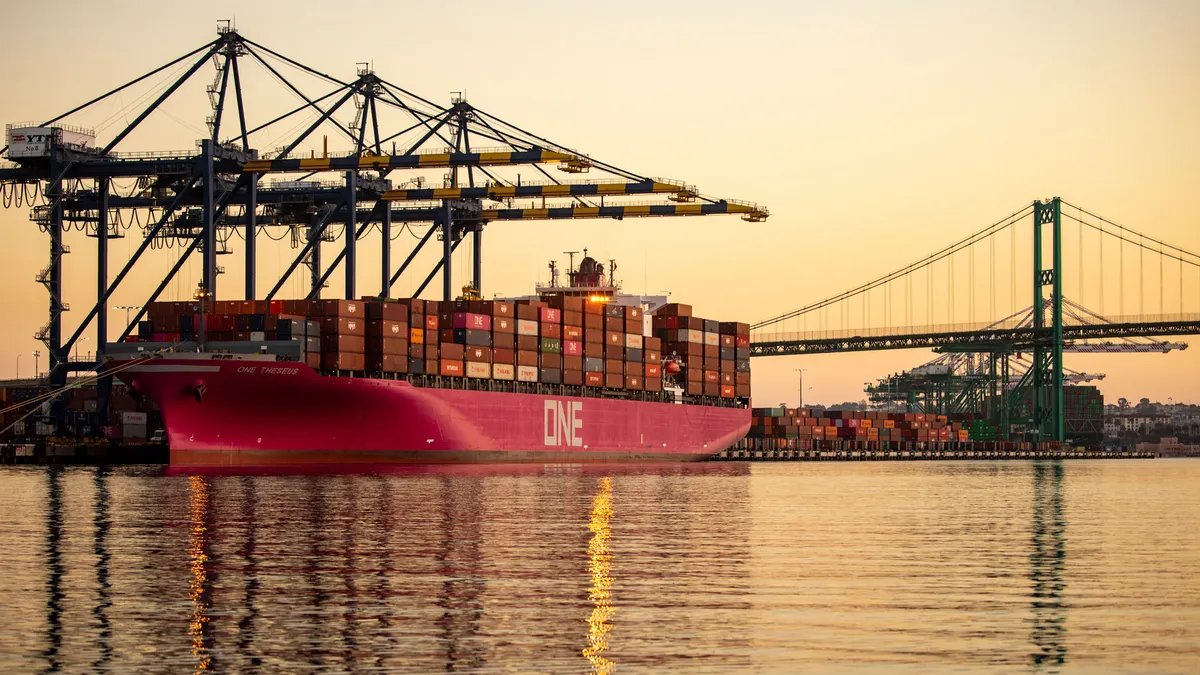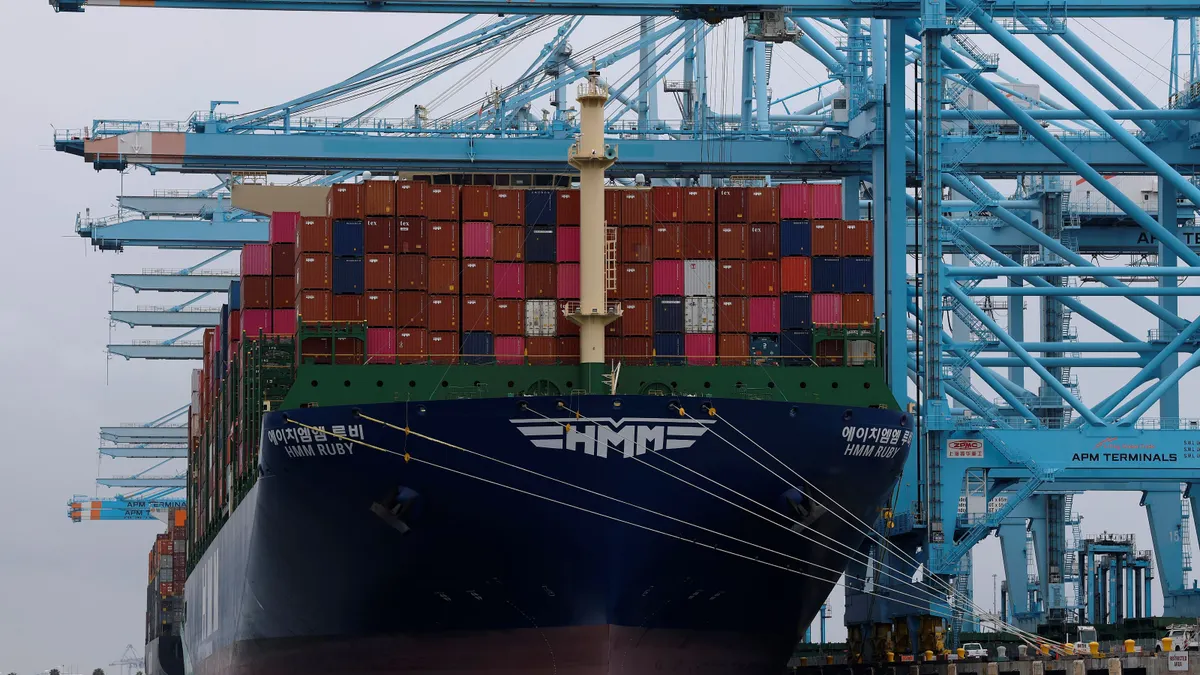Highlights
Date launched:
January 2018
Value proposition:
15% added growth for container shipping
Outlook:
Two companies competing to make blockchain mainstream may be the push the industry needs to embark on a path to digitalization.
A year ago, blockchain was the buzzword of the year.
Left and right, startups were unveiling blockchain-based platforms. The technology, they said, would revolutionize the world. Supply chains, they thought, could be one of the first big beneficiaries.
But even then, as the venture capital world was abuzz with hopes and dreams, executives saw it as a technology looking for a solution, and its widespread adoption an unlikely reality.
Then, in January 2018, Maersk and IBM decided to start the new year with a bang.
Together, they sought to form the supply chain’s preeminent blockchain solution, called TradeLens. It was a perfect partnership: a technology giant and the largest container shipping company in the world. Within months, dozens of players signed up to test the solution.
By the end of the year, blockchain — still abuzz — was no longer just a dream.
A consequential choice
The Maersk-IBM blockchain solution could fail to catch on, but that would not make the decision to start it any less consequential.
Early on, critics of the solution argued instead of sowing unity for supply chains, the fact that it was led by Maersk Line — the biggest ocean carrier — meant shipping lines would distrust the solution. Hapag-Lloyd’s CEO reportedly said as much at the Global Liner Shipping Conference in May.
True to form, by November 2018, nine companies – including the major carriers of COSCO, CMA CGM, Evergreen Marine, OOCL and Yang Ming – had decided to form their own blockchain solution. The solution, built by CargoSmart and called the Global Shipping Business Network (GSBN), also has the backing of several terminals and ports.
The new rivalry — of TradeLens versus GSBN — may force new challenges for both endeavors, as the companies compete for adoption.
But in the course of a year, and in this industry, the idea of blockchain for shipping has transcended from a business experiment to a real race. Winning, now, is contingent on how many supply chain partners can be convinced to join a side.
A global opportunity
Maersk had been thinking about the sources of friction in ocean shipping for years by the time IBM came along, Lars Kastrup, the TradeLens lead at Maersk, told Supply Chain Dive.
He said Maersk began to engage in discussions about digitalizing the industry, at least as far back as 2010. At the time, customs authorities in the Netherlands were pushing for a solution to help remove excessive paperwork from trade.
"Obviously we supported the idea back then," Kastrup said. He explained global shipping typically grows at the rate of global GDP, but if the industry digitalized, Maersk believed it could grow by up to another 15%.
"Our purpose is to make a digital quantum leap."

Lars Kastrup
Global Head of Sales, Maersk TradeLens
As of 2010, however, digital initiatives had yet to deliver the quantum leap the industry needed. By 2016, though, the landscape had changed.
That year, blockchain as a concept began to take off, and IBM and Maersk launched a series of what they called "thinking workshops." The purpose, Kastrup said, was to determine what the concept could look like in practice and develop pilots to test it.
The first pilot project came in the form of a shipment from Kenya to Holland in June 2016. After that, IBM and Maersk teamed up with a freight forwarder and a customs authority to test a blockchain-enabled shipment live in February 2017.
Then, "it really took off," Kastrup said.
A perfect partner
"The interactions almost happened like boom, boom, boom," Todd Scott, vice president of global trade – blockchain, at IBM, told Supply Chain Dive after being asked what the environment was like at IBM upon the news of a joint venture.
Scott heard the news about a week before the official announcement came out – right after New Year’s Day, 2018. "Hey listen, I’d like you to engage with Mike White," his boss told him, referring to the now-CEO of TradeLens.
He said the opportunity to build out this product excited him. The partnership had the "potential to transform an industry that has not really changed much in 60 years," Scott said, adding it is rare to get the opportunity to add "that kind of value proposition."
But the opportunity was timely for another reason: Maersk and IBM are both in the middle of what appears a redefining of their business propositions.
This year, Maersk announced a vast restructuring of its company, bringing several of its sub-divisions together as it sought to become a "global integrator" for logistics.
"TradeLens is an enabler for the new strategy of Maersk. Actually, it’s essential," Kastrup said, noting the data points gained from the platform will help Maersk spot inefficiencies within customer supply chains and suggest solutions.
IBM, meanwhile, would double down on blockchain technology as a solution it could provide with first-mover advantage. TradeLens is just one solution for the company: In October, IBM Food Trust went live with major players like Walmart onboard.
The partnership, Scott said, is in line with "what our CEO has always challenged us to do: Come up with thoughts and ideas that can transform – have a significant impact – around the world."
A ‘quantum leap’ for the industry
Whether or not Maersk succeeds in developing blockchain for ocean shipping, this award is for a decision that resonated with the industry in 2018, and the story behind that decision is one that may resonate with any leader.
The founding of TradeLens, as told by both IBM and Maersk, is a tale of one big dream for supply chains.
"It’s not a Maersk or IBM solution — it’s a TradeLens solution for the industry," Kastrup said. "Our purpose is to make a digital quantum leap … we want to make the pie bigger."
"TradeLens is an enabler for the new strategy of Maersk. Actually, it’s essential."

Lars Kastrup
Global Head of Sales, Maersk TradeLens
The way Kastrup explains it, the blockchain solution is not so much about blockchain, or shipping — rather, it’s about digitalizing the supply chain industry.
"What we would like to do is kind of the second revolution," he said. If the invention of the shipping container led to a wide expansion of global trade back in the 1970s, the "digital revolution" could do the same today.
Win or lose, both players in the rivalry will deeply contribute to an unlikely scenario for 2018: Blockchain seems like it is here to stay, and that it will play a key role in accelerating a digital shift for global trade.
Read More
-
94 supply chain players sign on to Maersk, IBM blockchain initiative
By Edwin Lopez • Aug. 9, 2018 -
9 ocean carriers, terminal operators join new blockchain initiative to rival TradeLens
By Emma Cosgrove • Nov. 7, 2018 -
Buzzword of the Year: Blockchain
By Kate Patrick • Dec. 4, 2017





